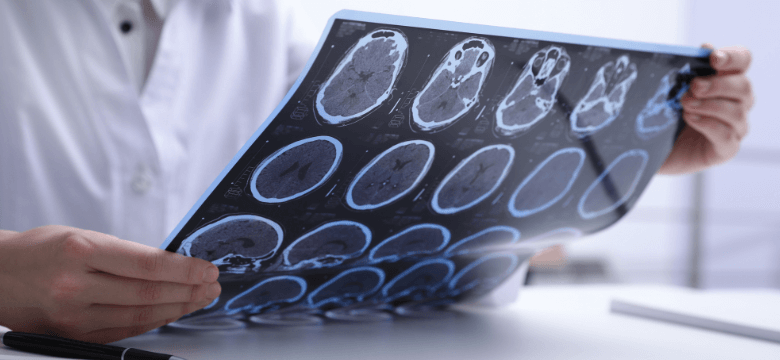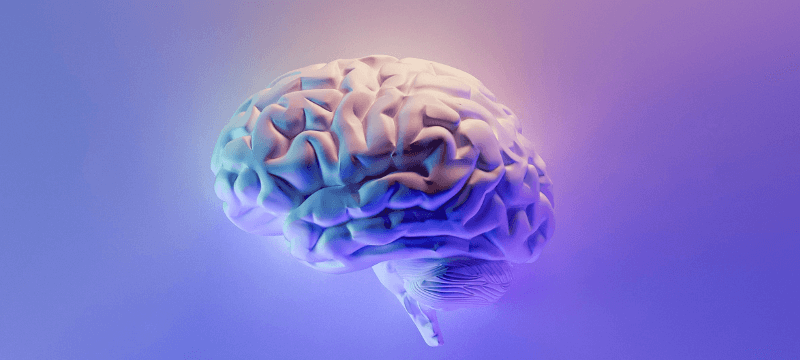
Sports players, especially famous ones, are admired worldwide for their talent and physical superiority. They are seen as almost invincible, especially in games such as rugby, where a massive blow to the head is relieved by a quick pause, a sip of an energy drink and getting back in the game. However, these seemingly inconsequential head injuries end up taking a toll, making players vulnerable to a dangerous condition known as Chronic Traumatic Encephalopathy (CTE), which can cause permanent brain damage. Fortunately, although there is no cure, new research shows CBD for CTE may be able to ease some of the symptoms that make living with the condition so difficult.
Read on to find out everything you need to know about CTE, including what it is, how it is treated, and how exactly cannabidiol (CBD) can make life easier for those with Chronic Traumatic Encephalopathy.
Table of Contents
What is Chronic Traumatic Encephalopathy (CTE)?
In the past, Chronic Traumatic Encephalopathy (CTE) was believed to be a condition suffered by boxers that had taken too many blows to the head, but today we know that it is a condition that can be associated with any contact sport, especially American football and rugby. According to the NHS, CTE is “Chronic traumatic encephalopathy (CTE) is a progressive brain condition that's thought to be caused by repeated blows to the head and repeated episodes of concussion.”
CTE causes neurological and physiological abnormalities in the brain, including the build-up of a protein called tau, which accumulates in the areas of the brain that control essential functions such as cognition, mood and motor function. This build-up impairs brain activity, ultimately causing damage to the brain.
What causes CTE?
It is not entirely clear what the exact causes of CTE are. As mentioned above, CTE is believed to be caused by constant head injuries or repeated episodes of concussion. But do not confuse CTE with a concussion. They are not the same thing.
Many people who experience concussions don’t develop CTE, although evidence suggests constant concussions can lead to the condition.
Those most at risk of developing CTE include:
- Athletes that play contact sports (such as boxing, rugby and American football)
- Military veterans exposed to explosive blasts that resulted in repeated head trauma
- People with repeated head injuries
Basically, those with the highest risk of developing CTE are people who repeatedly suffer traumatic brain injuries.
Symptoms of Chronic Traumatic Encephalopathy (CTE)
Unfortunately, there is no way to properly diagnose CTE in a living person. Only after death can the brain be examined for tau deposits.
To make a diagnosis while someone is still alive, doctors look at the patient's history of contact sports along with the symptoms and characteristics that indicate CTE.
These symptoms include the following:
- Confusion
- Difficulty concentrating or thinking
- Disorientation
- Headaches
- Insomnia
- Memory problems
- Mood disturbances and disorders
- Muscle stiffness
- Nausea
- Slowed movements
- Slurred speech
- Tremors
- Vertigo
This list is by no means exhaustive. These symptoms interfere with brain function and eventually lead to dementia after several years. With no cure, people living with the condition face a difficult life. Fortunately, there are a number of ways to ease the symptoms of CTE.
How to treat CTE
Although there is no cure, there are ways to make living with CTE easier. If a healthcare expert diagnoses you with the condition, they will help develop and carry out a long-term care plan with social services. They may also suggest you see an occupational or speech therapist.
It's important you know as much about your condition as possible. For additional guidance, get in touch with an Alzheimer's or dementia support group. They will be able to advise you further and give you the support you need.
Some people also add more natural methods to their treatment plan, such as using CBD for CTE. But is there anything to this? Could CBD actually help ease your symptoms?
CBD for CTE
According to research, hemp-derived CBD possesses properties that can help people living with CTE manage their symptoms and give them hope for a better life. Not only does it have the ability to help ease symptoms such as pain, mood disorder and tremors, but it also has the potential to help protect the brain from concussion.
Many people who use CBD for CTE report that it effectively reduces many of their symptoms, including headaches and disorientation. These overwhelmingly positive anecdotal accounts have encouraged researchers to look into CBD's potential benefits for those living with CTE. Although research is still in its infancy, the positive reports and current studies show promising results.
What does the research say?
Various studies show that CBD's potent anxiolytic properties have mood-lifting and neuroprotective effects. A 2012 study revealed that administering CBD to mice after brain injury led to long-term neuroprotection and improved function.
Many researchers believe that these neuroprotective properties should be used by athletes to help protect their brains. According to some studies, athletes with CBD in their brains are less likely to sustain severe brain injuries. They recommend that CBD be taken before a game as a preventative measure against concussion.
Emerging research also shows that CBD could even help protect the brain after injury by preventing tau from accumulating and reducing or preventing any function loss it could cause. Best of all, CBD has also been shown to help promote new brain cell growth, which could help repair any damage caused by brain injury.
CBD is believed to be so effective for CTE, as the symptoms of the condition are all regulated by the endocannabinoid system (ECS). The ECS is a network of receptors found throughout the body that are activated by cannabinoids such as CBD. CBD can help activate the system and restore equilibrium when our bodies cannot regulate these functions.
In a nutshell, this research suggests that CBD can help reduce the severity of the damage and restore brain function.
However, most studies into the effects of CBD on CTE are done on animals, and many more human studies are needed for us to be sure of any potential benefits.
The possibilities that CBD will present for treating CTE and other conditions linked to brain injury will become more apparent due to the ongoing research currently being conducted.
Is it safe to use CBD for CTE?
Although there is still a lot we don’t know about CBD, the World Health Organization (WHO) has confirmed that CBD is generally safe to use. That being said, there are cases of unpleasant side effects that rarely occur, such as:
- Appetite changes
- Diarrhoea
- Drowsiness
- Dry mouth
- Fatigue
CBD could also interact with other medications, so discussing it with your doctor before using it is vital. They will be able to advise you further.
IMPORTANT: If you play sports or undergo regular drug testing, it’s important to keep in mind that some cannabidiol products may contain trace amounts of tetrahydrocannabinol (THC), a psychoactive compound, which may show up on a drug test.
Key takeaways
With an increasing amount of CTE cases coming to light, it is crucial to discuss the potential impact CBD could have on protecting the brain and easing the symptoms of this debilitating condition. As new studies emerge, we will begin to learn more about the cannabinoid and whether CBD for CTE is a viable option. Until then, watch this space.
Research links:
https://www.nhs.uk/conditions/chronic-traumatic-encephalopathy/
Read our similar article on: CBD for ADHD






